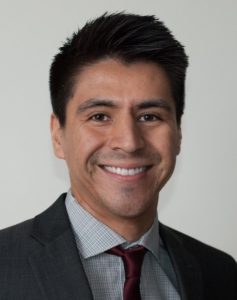 By Eric Howard
By Eric Howard
I was driving through a small town north of Tucson, Arizona, headed back to my college dorm room. I was making a turn in when I saw the police lights against the night’s sky. Call me naive, but I didn’t know where to pull over safely, so I drove into a neighborhood where it felt okay to stop. I rolled down the window; the rest was a blur.
Several more cops arrived. A police officer questioned me at the tailgate as others searched my dad’s old pick-up truck. The police officer told me they thought I was someone else, then released me.
“My experience with the police that night is part of my coming of age story as a brown American.”
That experience is part of my coming of age story as a brown American. Having been raised in a white, middle-class family, it was part of my awakening to the unintended consequence of racial bias in our public safety system. This uncomfortable truth has never felt more egregious than George Floyd’s murder by a white police officer.
AT ONE SYNOD-SPONSORED debrief about George Floyd’s death and the social unrest that followed, a pastor told a story about a parishioner frustrated by the destructive acts around the church. The church member had been praying for understanding when a moment of clarity hit: The destructive acts are actually about pain. Deep pain around the church he never knew was there. He asked himself: why haven’t I seen this pain? Where have we, as a church, been?
My interaction with the police that night years ago left me with a feeling of mistrust that’s been with me ever since. (Who will they think I am next time?) Mistrust is painful and destructive: physically, mentally, spiritually.
“The church member had been praying for understanding when a moment of clarity hit: The destructive acts are actually about pain.”
I don’t know that Minneapolis parishioner mentioned in the debrief, but I know today’s protests against police brutality are cracking open something new – a new place where that parishioner and I might acknowledge, for the first time, a common pain.
At the synod, we strive to support congregations as they live out God’s call to do justice and love mercy. My hope, always, is that our work is a catalyst for stepping into the boldness and newness of Christ. At the moment, here’s what that looks like:
Pray. 30 Days of Silent Prayer: Healing the Heart of Our City
- African American-led collaborative to heal the pain of racism and the devastation of COVID-19 through silent prayer and meditation.
Give. Responding in Faith Fund
- Fund to support long-term racial justice and short-term restoration of neighborhoods impacted by social unrest.
- Monthly forum series to help congregations live out God’s call to do justice. Catch the next forum on Thursday, July 23.
Hope. Ministry Imagination Grants
- Get inspired by grant recipients innovating in today’s challenges.
